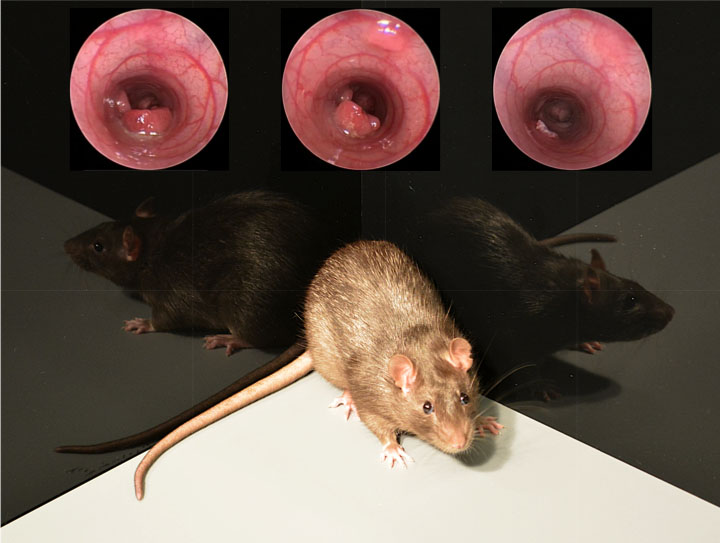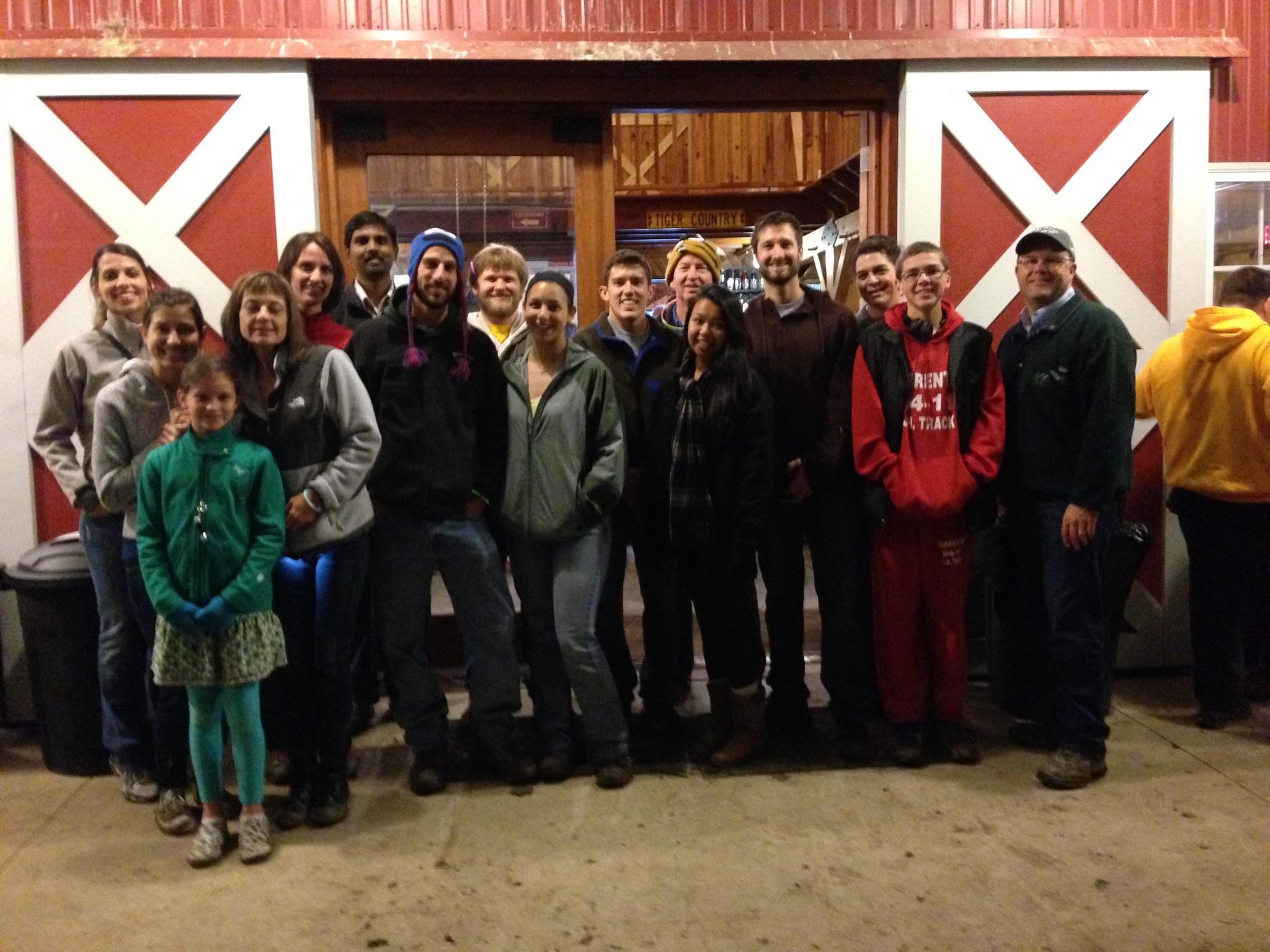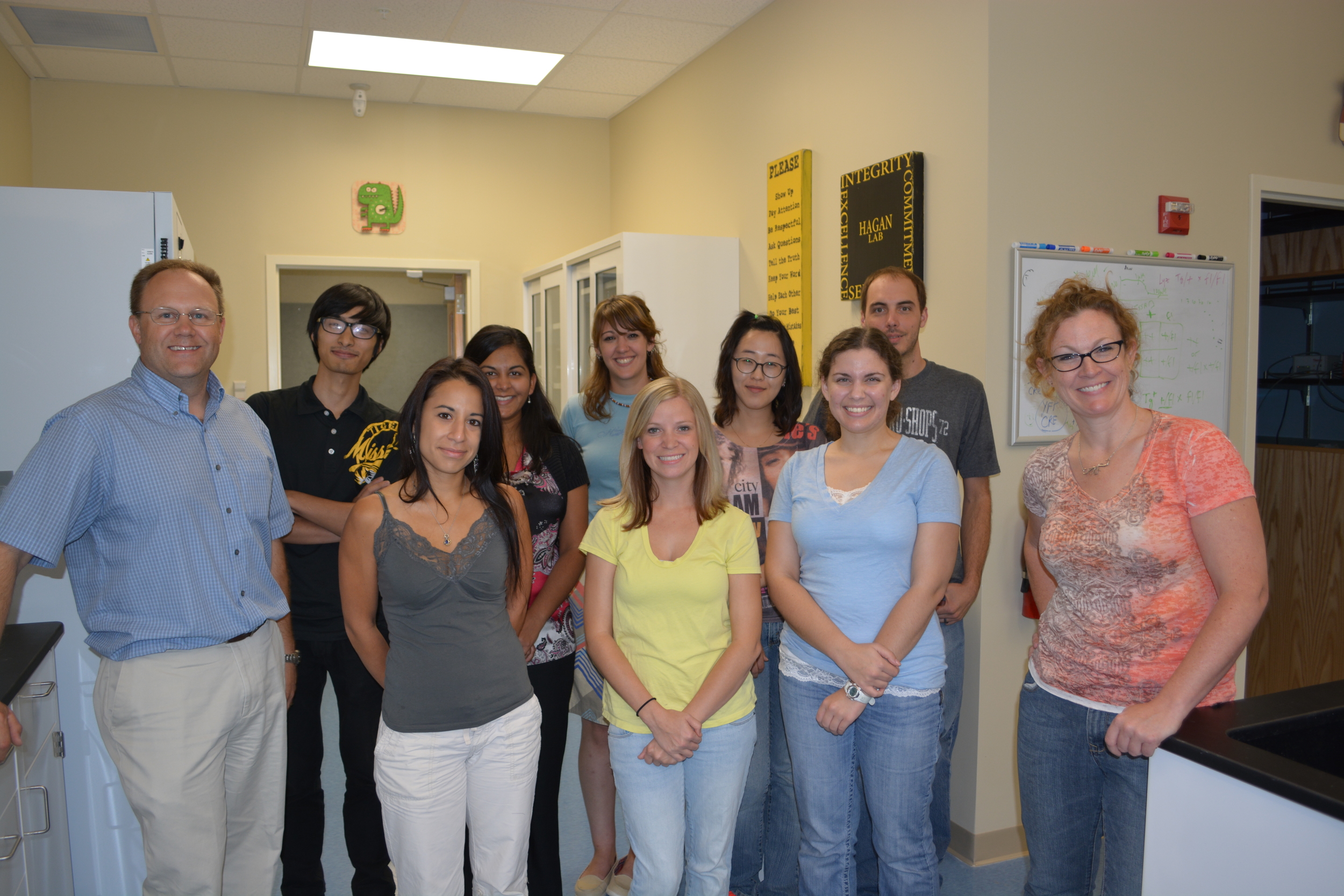Understanding Colorectal Cancer:
Animal Models, Epigenetics, Genetics and Metagenomics
Our Interests
Our laboratory studies human colon cancer through the use of animal models. Using genetically engineered models of colon cancer in the mouse rat and pig, we are better able to understand the molecular genetic events that influence the initiation and progression of cancer.
Our Latest Research
Recent studies investigating the human microbiome have identified particular bacterial species that correlate with the presence of colorectal cancer. To evaluate the role of qualitatively different but naturally occurring gut microbiota and the relationship with colorectal cancer development, genetically identical embryos from the Polyposis in Rat Colon (Pirc) rat model of colorectal cancer were transferred into recipients of three different genetic backgrounds (F344/NHsd, LEW/SsNHsd, and Crl:SD).
It recently has been recognized that men develop colonic adenomas and carcinomas at an earlier age and at a higher rate than women. In the Apc(Pirc/+) (Pirc) rat model of early colonic cancer, this sex susceptibility was recapitulated, with male Pirc rats developing twice as many adenomas as females. Analysis of large datasets revealed that the Apc(Min/+) mouse also shows enhanced male susceptibility to adenomagenesis, but only in the colon.






